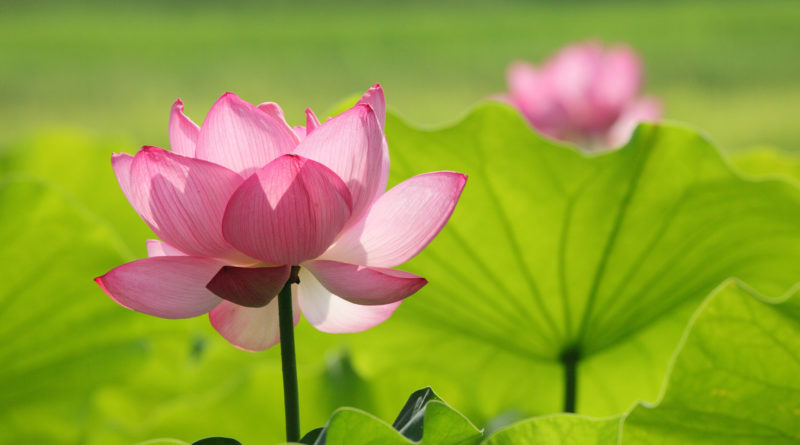2. Dukanipāta 16. Kodhapeyyālaṃ
Aṅguttara Nikāya
2. Dukanipāta
16. Kodhapeyyālaṃ
181. Bhikkhus, these are two things. What two? Anger and grudge … re … ṭhe concealing nature and a feeling of ill will … re … jealousy and selfishness, … re … a deceptive appearance and crafty work, … re … without shame and without regrets.
182. Bhikkhus, these are two things. What two? Without anger and without a grudge … re … ṇot of a concealing nature and without ill feeling, … re … ṇot jealous and not selfish, … re … without deception and not crafty , … re … shameful and has regrets/
183. Bhikkhus, abiding with two things the bhikkhu lives in unpleasāntness. What two? Anger and grudge … re … ṭhe concealing nature and a feeling of ill will … re … jealousy and selfishness, … re … a deceptive appearance and crafty work, … re … without shame and without regrets.
184. Bhikkhus, abiding with two things the bhikkhu lives in pleasāntness. What two? Without anger and without a grudge … re … ṇot of a concealing nature and without ill feeling, … re … ṇot jealous and not selfish, … re … without deception and not crafty , … re … shameful and has regrets.
185. Bhikkhus, these two things lead to the diminution of the trainer bhikkhu. What two? Anger and grudge … re … ṭhe concealing nature and a feeling of ill will … re … jealousy and selfishness, … re … a deceptive appearance and crafty work, … re … without shame and without regrets.
186. Bhikkhus, these two things lead to the non diminution of the trainer bhikkhu. What two? Abiding without anger and without a grudge … re … ṇot of a concealing nature and without ill feeling, … re … ṇot jealous and not selfish, … re … without deception and not crafty , … re … shameful and has regrets.
187. Bhikkhus, endowed with these two things, the bhikkhu, as though led and lain there is born in hell What are the two things? With anger and grudge … re … ṭhe concealing nature and a feeling of ill will … re … jealousy and selfishness, … re … a deceptive appearance and crafty work, … re … without shame and without regrets.
188. Bhikkhus, endowed with these two things, the bhikkhu, as though led and lain there is born in heaven What are the two things? Abiding without anger and without a grudge … re … ṇot of a concealing nature and without ill feeling, … re … ṇot jealous and not selfish, … re … without deception and not crafty , … re … shameful and has regrets.
189. Bhikkhus, endowed with two things a certain one, after death is born in decrease, in a bad state, in hell. What two things? With, anger and grudge. … re … ṭhe concealing nature and a feeling of ill will … re … jealousy and selfishness, … re … a deceptive appearance and crafty work, … re … without shame and without regrets.
190. Bhikkhus, endowed with two things a certain one, after death is born in increase, in a good state, in heaven. What two things? Abiding without anger and without a grudge … re … ṇot of a concealing nature and without ill feeling, … re … ṇot jealous and not selfish, … re … without deception and not crafty , … re … shameful and has regrets.
Akusalapeyyālam. -Repeats of demerit.
191-200. Bhikkhus, these two things are demeritorious, these two things are meritorious, these two things are defective, these two things are not defective, these two things yield pain, these two things yield pleasure, these two things bring unpleasant results, these two things bring pleasant results, these two things are full of trouble and these two things are without trouble. What two? Abiding without anger and without a grudge … re … ṇot of a concealing nature and without ill feeling, … re … ṇot jealous and not selfish, … re … without deception and not crafty , … re … shameful and has regrets.
Vinayapeyyālam – Repeats of the Discipline
201. Bhikkhus, seeing these two good reasons the Thus Gone One has appointed precepts to the disciples. What two? For the excellence and the pleasantness of the Community, to ward off the wicked thoughts of humans, for the good of well behaved bhikkhus, to restrain desires here and now and to ward off desires here after, to restrain anger here and now and to ward off anger here after, to restrain offending here and now and to ward off offending here after, to restrain fears here and now and to ward off fears here after, to restrain from demeritorious thoughts here and now and to ward off demeritorious thoughts here after. For the compassion of lay folk, to cut off the desires of unvirtuous bhikkhus, for the pleasure of the pleased and for a development of pleasure of those pleased. For the firm establishment of the good Teaching and for following the rules. Bhikkhus, seeing these two good reasons the Thus Gone One has appointed precepts to the disciples.
202-230. Bhikkhus, seeing these two good reasons the Thus Gone One has appointed, the higher code of rules, repeating and questioning on the higher code of rules, the arrangement for the higher code of rules to be repeated, the satisfaction on account of it, the arrngement to obtain the satisfaction. For rebuking, sending out, excommunicating, reconcilling, suspending, keeping under probation, recalling it from the beginning, accepting penance, causing to be rehabilitated, reinstating, throwing out as useless, making to take the responsibility on oneself, making an announcement after a resolution, making a second announcement, making announcements upto the fourth time, reminding the lack of sense, reminding the lack of sense for the second time, carrying out the proceedings in the presence, calling to be mindful. , acquitting on the grounds of insanity, making to promise, settling the matter with the vote of the majority, reminding its demeritorious nature, and covering up as though with grass, to the disciples. What two? For the excellence and the pleasantness of the Community, to ward off the wicked thoughts of humans, for the good of well behaved bhikkhus, to restrain desires here and now and to ward off desires here after, to restrain anger here and now and to ward off anger here after, to restrain offending here and now and to ward off offending here after, to restrain fears here and now and to ward off fears here after, to restrain from demeritorious thoughts here and now and to ward off demeritorious thoughts here after. For the compassion of lay folk, to cut off the desires of unvirtuous bhikkhus, for the pleasure of the pleased and for a development of pleasure of those pleased. For the firm establishment of the good Teaching and for following the rules. Bhikkhus, seeing these two good reasons the Thus Gone One has appointed precepts to the disciples.







